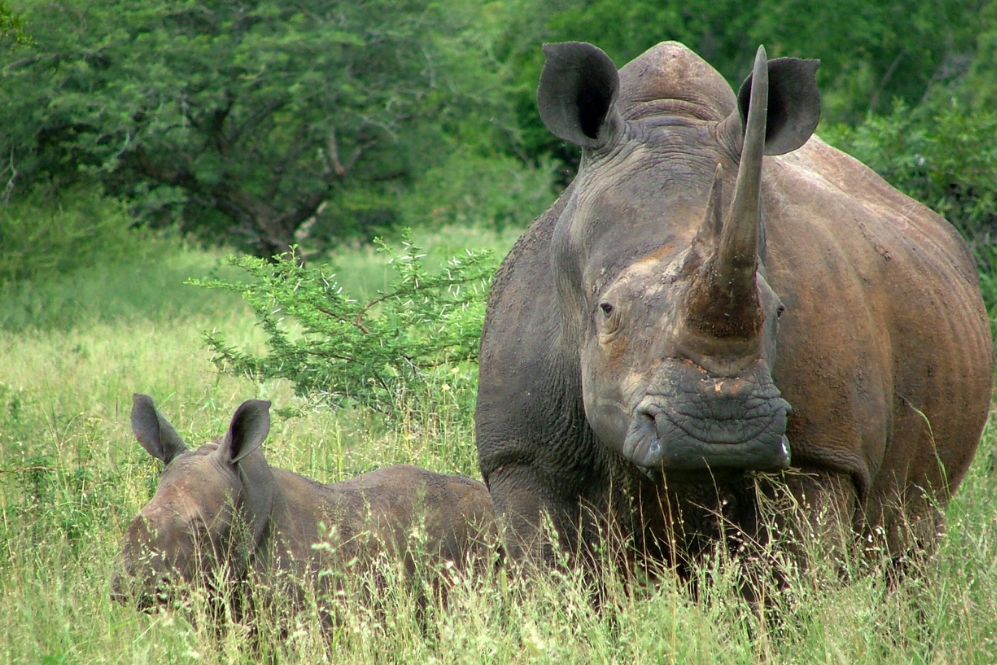Rhinos across KwaZulu-Natal (KZN) are under threat. After a couple of steadier years, with annual poaching numbers hovering below 150 (thanks, in part, to Covid-19 lockdowns, alongside committed work by law enforcement units), 2022 has brought a surge in rhino poaching across the province; on average, one rhino is currently being poached every 34 hours. Throughout KZN, dedicated rangers are working diligently to combat this crisis.
Rangers like those at uMkhuze Game Reserve, a reserve covering around 45,000 hectares in the north of the province, close to the Mozambique border. uMkhuze is relatively small – for comparison, Kruger National Park is approximately 2,000,000 hectares – but nevertheless its rhinos are incredibly important; the black rhino population at uMkhuze is one of only two remaining original black rhino populations in KZN, making the protection of these rhinos even more vital.
The current crisis in KZN follows a Covid-19 pandemic that has squeezed the park’s resources more than ever, making things incredibly difficult for the rangers who strive to protect rhinos. Budget freezes and diminishing resources have limited the reserve’s ability to recruit new rangers, maintain fences, and keep those on duty well equipped, well trained, and well rested.
With the increasing threat across the region, uMkhuze’s rangers are working harder than ever, constantly on high alert, doing everything possible to keep their rhinos safe. It hasn’t been easy. As a small reserve, uMkhuze is particularly difficult to protect; poachers can exit the reserve quickly, escaping by vehicle once outside of the boundary, and then, most likely, travelling to the Mozambique border, which has often been used as an illegal smuggling route. To stop poaching attempts and catch those responsible, uMkhuze’s teams must act quickly.
When money and resources for increasing teams are tight, other factors, such as technology, become essential ‘force multipliers’ to support anti-poaching work. Adding a strong and secure Wi-Fi network across the park and installing more cameras in key locations, for example, can help rangers respond quickly and safely to suspected poaching incursions, and so keep more rhinos safe.
Eduard Goosen, Conservation Manager, uMkhuze Game Reserve, said,
“The reality is that the situation around fiscal and human resources is not getting any better, and we need to adapt and innovate as much as we can to address the threat at the ground level. We need to change the way think and do. We need to change hearts and minds, and we just can’t do it on our own.
We need a sustainable approach to address the risks. However, all the time we are doing crisis management due to diminishing resources, the enabling environment to create desired change will not come about. And this, we can only do it with your support and through effective collaboration. We appreciate and commend you for your support in assisting us in our endeavour to protect biodiversity”.
It’s thanks to people like Eduard that uMkhuze’s rhinos are protected. And it’s thanks to people like you that Eduard and his team can continue their essential rhino protection work.
With your generous donations to our Save KZN’s Rhinos appeal, we can provide more support to Eduard and other rangers at uMkhuze, funding more force multipliers that can truly make a difference to their work. During such tough times, uMkhuze’s rangers need every bit of help they can get.









